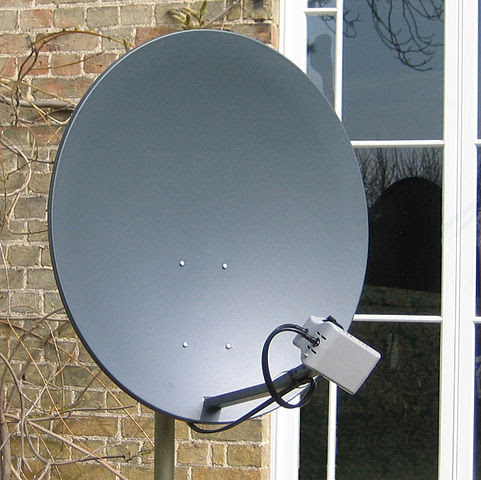I haven't been a victim of the clouds every year. For three years when I was a teen, I actually did some radio astronomy. I had a short wave radio receiver, and I built new antennas for it each year. I started with a simple wire-wound antenna, using magnet wire wrapped around a fiberglass pole from a bicycle safety flag. It picked up the sound of electrical discharges between Jupiter and Io. The next year I made a simple dipole, which was a bit more directional, especially since the Earth and my apartment building blocked signals from two directions pretty well. But the apex of my experiments was the same dipole the next year.
I trimmed its length to let it catch the frequencies I wanted more precisely in my high school's electronics lab. I didn't have any of the tools for that at home. Then I made a rickety "corner reflector" for it out of chicken wire and 2x2 lumber.
With it I was able to catch the sounds of Jupiter and some other strong astronomical radio sources much more clearly. The background static was much reduced, and there was more detail to the sound, in fact, it started to sound like sounds rather than lightning discharges on an AM radio. I used this same get-up to catch some radio noises from Earth's own atmosphere, too.
The results were enough that I've stayed interested in doing radio astronomy ever since, though I haven't done anything practical about it. But I sure think about it, every time the clouds move in.

Some great projects using satellite TV dishes as antennas:
NRAO Information for Amateur Radio Astronomers
Jupiter and Other Simple Starter Projects:
Detect Radio Emissions from Jupiter
Small Amateur Radio Telescope
More projects from the U.K.:
UK Amateur Radio Astronomy
A book, with some thick crunchy bits, that I recall reading back when I was getting started:
Radio Astronomy for Amateurs
And more fun stuff:
Radio Astronomy Projects
Radiosky Radio Astronomy Projects
This year I'll probably be distracted by "chasing DX" in amateur radio. I got my license last year, and I've only recently made my first contacts on the "HF" bands (short wave radio, basically.) But I may see if I can tune in Jupiter along the way.



No comments:
Post a Comment